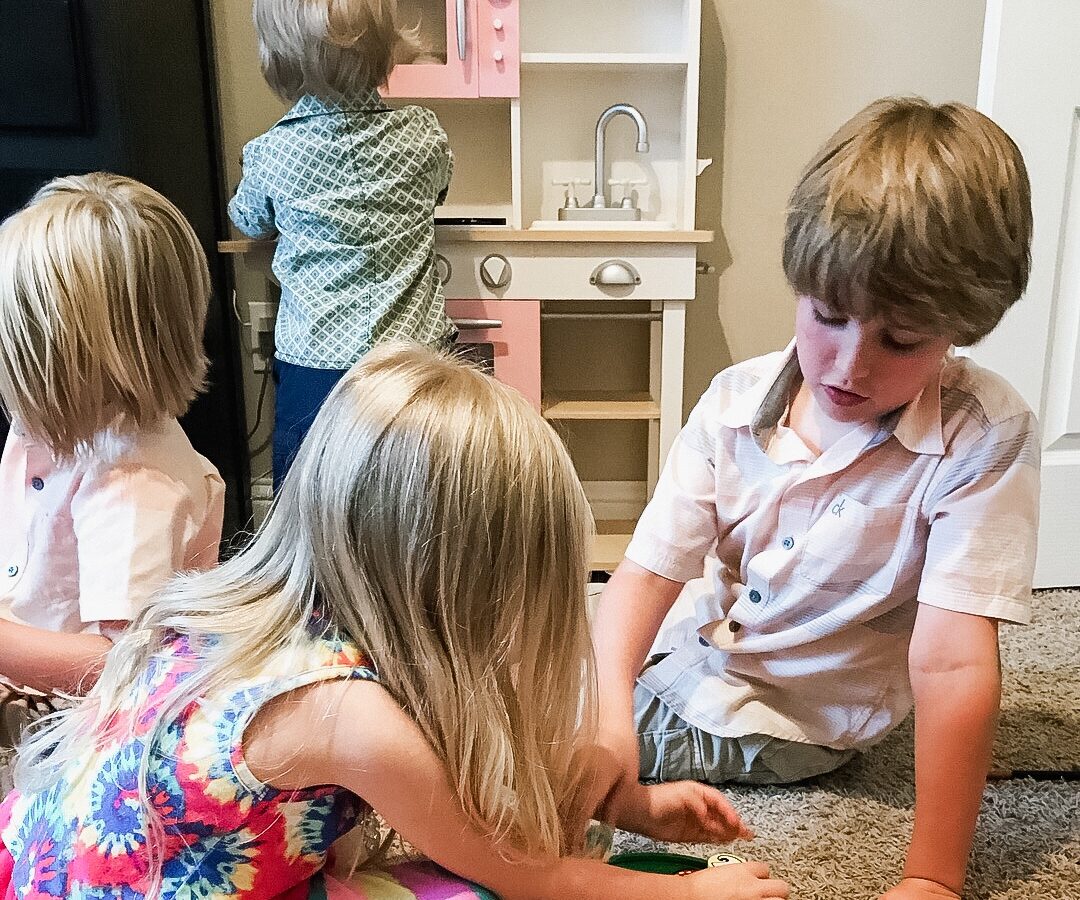There’s so many things about foster care I love to talk about, but I am really having trouble articulating this. It’s honestly pretty embarrassing to admit that I’ve requested that a child be moved from our home. Failing is always hard, but it’s especially difficult when the stakes are so high. It’s a weird tension to be in. As much as foster care will challenge you and push you out of your comfort zones, there’s also something irresistible about seeing families heal. Front row seats to kids overcoming the hardest of places is something I’m a thousand percent here for. But something we don’t talk much about is the tap out. Knowing when you’ve gotten into a situation beyond your ability to maintain is a critical skill in the foster care world. It isn’t to be taken lightly, every effort is made to assess the needs of the situation before a child walks in my door, but sometimes there’s just no way to know until you’re face to face with a person’s hurt.
Our days turned into a pretty constant cycle of managing her trauma. It was lots of one on one, which I can admit I’m pretty good at, but it left the other 4 kids to fend for themselves much of the time, and also left the big kids managing the little brother when I was occupied calming her down. There was one other time we experienced a placement like this. We pushed through, and for the 6 months until they were reunited with their parents, I gave those girls the best I had to offer at the expense of my forever family and we are still paying the price for that 6 years later. Yet somehow we had found ourselves in the same boat, seeing the same signs. After 13 kids that my children have cried over, mourned, and begged to stay, just 3 weeks into this placement my son sat crying on my bed and (for the first time ever) asked “Mom, when can they go to their home?”. I answered him as best I could “I’m not sure, buddy. There’s a lot of work to do to make their home safe to go to again”. I realized the kids were checking out and I panicked. So I made the call and requested that the two siblings be moved to another foster home. There was a confusing mixture of relief, sadness, and shame. Feeling like a failure because I changed my yes to a no. I loved those kids fiercely, but I was drowning, and I was watching the other kids that I was already forever responsible for drown beside me. Drowning people can’t help other drowning people.
I would give anything to get a do over of saying goodbye to her. I remember buckling her into her seat, blowing her a kiss and smiling as she drove away, and then collapsed into tears in my car. In my heart, what I intended to communicate through my body language and facial expressions was that she was safe and didn’t need to be afraid, but I fear what I actually communicated to her was that I was unmoved and didn’t care enough to be even a little sad about saying goodbye. I wish I could go back and hug her tight and let her know that she would be missed and that this had far more to do with my shortcomings than it did with hers. I wish I could have acknowledged how unfair this whole situation was for her and that no child too young to tie her own shoe laces should ever have to live with a stranger.
I really and truly believed they needed more than I could give them. They were healing, but I couldn’t maintain the pace. Like I said, the rest of us were drowning, and I had 4 more kids who were also depending on me. Maybe it wouldn’t still hit so hard if the move had been good for them, but it wasn’t. They’d move again shortly after that. And at this point I have no idea where they even are or if they’re ok.
I know all the right things to say. “You gave what you could” – “The time they spent with you still has value”. We can make a list later. But I can’t let it go. They felt safe here, and their mom felt safe with them here. It’s so hard to make choices when there’s not a solidly defined “good choice”. And it’s hard to know when to choose to make the hard sacrifices when that choice affects all of the other kids in my house, too. It’s never as easy as “just put one foot in front of the other and keep going”, there are other people to consider.
Part of me feels some regret. I wish that I’d been able to see that one through. And part of me feels ok with making a choice to protect the mental health of the kids that were already here. If nothing else, I did learn a very important lesson. Feelings are useful tools but sometimes they lie. When you are making big choices, feelings can’t have all the seats at the table. Save room for truth and trusted advice, because those are the things that help feelings do a good job.



